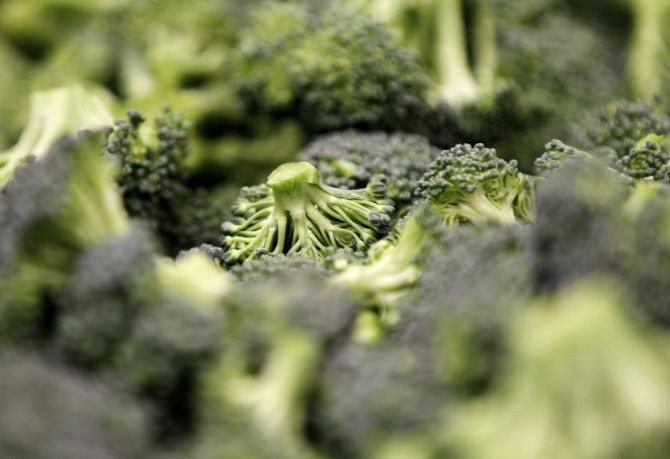Broccoli Compound Kills Cancer Cells

A compound found in cruciferous vegetables like broccoli can prevent deadly type of cancer that affects children, says a new study.
The compound, called sulforaphane, is thought to be effective in preventing and even treating solid tumors. Past research has shown that people who eat cruciferous vegetables have lower risk of certain cancers.
In the study, researchers from Baylor College of Medicine found that sulphoraphane was effective against acute lymphoblastic leukemia.
"Acute lymphoblastic leukemia is a type of cancer of the white blood cells common in children. There is about an 80 percent cure rate, but some children don't respond to treatment. For those cases, we are in need of alternative treatments," said Dr. Daniel Lacorazza, assistant professor of pathology & immunology.
Researchers isolated the compound from the vegetables and mixed it with cancer cell lines that were obtained from people diagnosed with the cancer. Healthy cells, also mixed and incubated with the compound, served as a control for the experiment.
Study results showed that the compound killed the cancer cells while the healthy cells weren't affected. Later study on mice also showed that the compound destroys cancer cells.
Lacorazza said that the compound kills cancer cells by reacting with certain proteins. He added that more research is required to determine the mechanism by which the compound attacks the cancer cells.
"There have not been definitive studies showing how this compound interacts with blood cancers," Lacorazza said.
Researchers are now trying to find out what proteins are affected by sulforaphane and how these can be used as a target to fight the cancer.
The research found that the compound found in broccoli is good for health. However, the broccoli in your plate may not be the weapon of choice in the fight against cancer.
"Sulforaphane is a natural product. However, what we used in this study is a concentrated purified form. So while eating cruciferous vegetables is good for you, it will not have the same effect as what we saw in the lab," said Lacorazza.
The study is published in the journal PLOS ONE.
Published by Medicaldaily.com



























